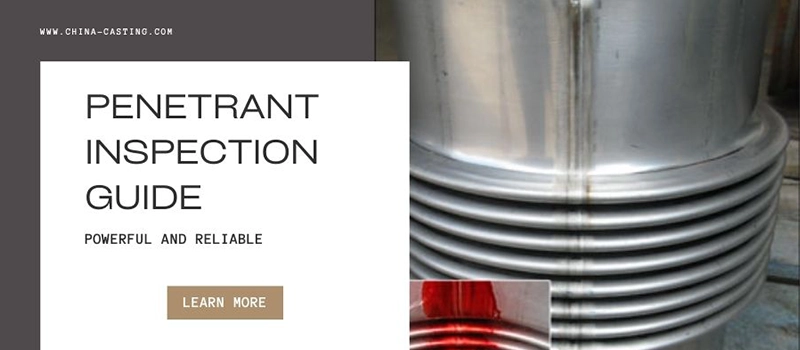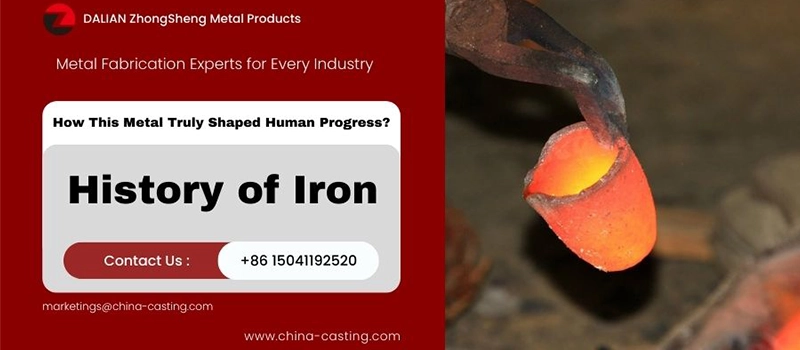Manufacturers today face growing pressure for tighter tolerances, faster turnaround, and cost-effective part production. Yet many still struggle with outdated machining techniques, inconsistent quality, or unreliable suppliers. How do you ensure your components are produced precisely, efficiently, and at scale?
CNC machining services provide the solution. By using computer-controlled machines to cut, drill, and shape materials with extreme precision, these services ensure accuracy and repeatability across production runs. They are trusted across industries to create everything from aerospace parts to medical components, delivering high quality without manual error.
According to ISO-certified production standards, CNC machining is now considered a foundational technology for modern manufacturing due to its accuracy, automation, and versatility. In this article, we’ll break down how CNC machining services work, why they matter, and how to choose the right partner for your business.
What Are CNC Machining Services
Definition and Function
CNC machining services refer to the use of computer-controlled machines to perform precise cutting, drilling, milling, and turning operations on various materials, most commonly metals. These services are essential for the production of complex components where high dimensional accuracy and consistency are required.
In a CNC system, digital instructions—usually derived from CAD files—guide the movement of tools and machinery. This automation removes the variability of manual processes, allowing for consistent part replication at small or large volumes. CNC machining services are widely used in industries such as automotive, aerospace, defense, energy, and industrial equipment manufacturing.
Key Features of CNC Machining Services
One of the core strengths of CNC machining services is repeatability. Once a program is set and calibrated, the system can produce hundreds or thousands of identical parts without deviation. Additionally, CNC machines offer multi-axis capabilities, allowing for more complex geometries to be machined in a single setup, which reduces time and tooling costs.
Accuracy, speed, and surface finish are three primary performance metrics. Most CNC machines can maintain tolerances within ±0.01 mm, depending on the material and tooling used. This makes CNC machining services ideal for applications where tight fits and high performance are required.
Types of Machines Used
Common equipment used in CNC machining services includes vertical and horizontal machining centers, CNC lathes, turning centers, and multi-axis milling machines. Each is selected based on the complexity, size, and tolerance level of the required component. Advanced systems may also include automated tool changers, robotic arms, and live tooling for continuous production.
CNC machining services are integral to modern fabrication, bridging the gap between digital design and physical production with speed and reliability.
CNC Machining Processes and Materials
Common CNC Machining Processes
CNC machining services encompass several primary processes that shape materials into precise, functional parts. These include:
Milling: Removes material using rotary cutters. Suitable for flat surfaces, slots, and complex contours.

Turning: Rotates the workpiece against a cutting tool. Ideal for cylindrical components such as shafts and bushings.

Drilling: Produces holes with high accuracy, often combined with tapping or reaming.

Grinding: Used for fine finishing where tight tolerances and surface smoothness are critical.

EDM (Electrical Discharge Machining): Used for intricate cuts in hard materials, especially molds and tooling.
Each of these processes can be automated under CNC control, allowing for multi-step operations to be performed in a single setup. This reduces cycle times and ensures consistency.

Multi-Axis Machining Capabilities
Modern CNC machining services often utilize 3-axis, 4-axis, or 5-axis machines, which can approach the workpiece from multiple angles. Multi-axis capability is essential when dealing with complex geometries or tight clearance zones. It minimizes the need for re-fixturing, enhances surface finish, and improves overall dimensional control.
5-axis machining, in particular, enables high-speed production of aerospace and medical components with curved surfaces or undercuts that are impossible to achieve with simpler machines.

Material Options in CNC Machining Services
CNC machining services support a wide variety of metals and engineering plastics. The most commonly machined materials include:

Aluminum
Aluminum CNC machining is popular because it’s lightweight, corrosion-resistant, and easy to work with. Grades like 6061-T6 aluminum are widely used in automotive, aerospace, and construction components.
Steel and Stainless Steel
Steel is chosen for its strength and wear resistance. Stainless steel CNC machining is especially common in environments requiring corrosion resistance, such as petrochemical and valve systems. Machining stainless steel can be more difficult, but it’s essential for critical parts under pressure or exposure to harsh chemicals.


Brass and Bronze
CNC machining bronze is ideal for valve bodies and fittings that require low friction and anti-corrosive properties. Brass is easier to machine and is commonly used in fittings, gears, and bushings.
Titanium
Titanium CNC machining is more specialized and used in aerospace, medical, and marine applications. It’s expensive but offers unmatched strength-to-weight ratio and corrosion resistance.

Engineering Plastics and Composites
Although metals dominate the CNC world, engineering plastics like POM (Delrin), Nylon, and PTFE (Teflon) are also frequently machined. These are ideal for non-conductive, lightweight, or chemical-resistant components. While they can’t match metals in structural strength, they excel in electrical insulation, wear resistance, and chemical compatibility.
Material Considerations for Precision
Each material behaves differently under machining conditions. For example, stainless steel requires slower cutting speeds and more robust tooling, while aluminum allows for higher speeds but may require coolant to prevent chip welding. CNC machining services tailor the cutting strategy based on material hardness, thermal conductivity, and chip formation characteristics to ensure optimal results.
Benefits and Industry Applications
Key Benefits of CNC Machining Services
CNC machining services provide several critical advantages that make them a preferred choice in precision manufacturing. These include:
- High Precision: CNC systems can maintain tolerances as tight as ±0.01 mm, making them ideal for components requiring exact dimensions.
- Repeatability: Once a part program is set, identical parts can be produced repeatedly without deviation, ensuring batch consistency.
- Efficiency: CNC machining services reduce production times through automation and simultaneous multi-axis operations.
- Flexibility: A single CNC machine can switch between different parts or materials without extensive setup changes.
- Reduced Human Error: With computer-guided control, the chance of manual mistake is minimized, increasing overall production reliability.
These advantages reduce rework, minimize waste, and support high-quality output across various part volumes.
Material Considerations for CNC Machining
When selecting materials for CNC machining services, consider the following:
- Machinability: How easily the material can be cut without excessive wear on tools.
- Mechanical Properties: Strength, ductility, hardness, and fatigue resistance.
- Thermal Stability: Will the part endure high heat or temperature cycling?
- Corrosion Resistance: Is the part exposed to moisture, chemicals, or saltwater?
- Cost and Availability: Balance performance with budget constraints.
Different materials also have different requirements for tooling, cutting speeds, and coolants, all of which can affect CNC machining cost and turnaround time.Choosing the right material is more than just a technical step—it’s a strategic decision that affects the success and longevity of your product.
Meeting the Demands of Modern Industrial Applications
CNC machining services are critical to industries that demand high precision, tight tolerances, and scalable production. From heavy machinery to high-tech devices, the flexibility and reliability of CNC make it the go-to manufacturing solution for countless applications.
Whether you’re producing parts for rugged outdoor equipment or mission-critical components for petrochemical systems, CNC machining offers the accuracy, speed, and repeatability required to meet modern industrial standards.
Automotive: Precision Parts for Performance and Safety

The automotive industry relies heavily on CNC machining services for everything from engine components to transmission housings and suspension brackets. These parts must meet strict performance specifications and undergo rigorous quality control.
CNC allows for rapid prototyping and mass production of customized automotive parts, ensuring vehicles are not only functional but also safe and efficient. Because the industry deals with both metal and plastic components, CNC’s versatility in material handling is a major advantage.
Agriculture: Durable Components for Tough Environments

Agricultural machinery operates under extreme conditions—mud, dust, vibration, and impact. CNC machining ensures that critical parts like blade holders, shaft brackets, and hydraulic couplings are made from materials that withstand wear and tear.
CNC machining services make it possible to produce rugged, corrosion-resistant components quickly and affordably, helping manufacturers maintain uptime and equipment reliability in the field.
Construction and Heavy Equipment: Strength and Scale

In the construction industry, CNC is used to fabricate parts for loaders, cranes, and excavators. These machines require high-strength steel parts, often in medium to large batch sizes.
CNC machining services deliver the precision needed for components like axle supports, gear housings, and chassis connectors, ensuring structural integrity and long service life.
Valve and Petrochemical: Tolerance and Corrosion Resistance

Valves and fittings used in petrochemical plants must operate under high pressures, corrosive fluids, and temperature extremes. CNC allows for the production of close-tolerance parts from materials like stainless steel, bronze, and titanium.
The valve industry especially benefits from CNC machining services that offer tight dimensional control and traceability. With CNC, complex internal geometries and sealing surfaces can be machined to exact specifications.
Aerospace and Medical: Zero Margin for Error

Although your business may not directly target aerospace or medical sectors, it’s important to note that precision CNC machining is vital here. These industries demand ultra-tight tolerances, certified materials, and flawless finishes.
CNC machining’s ability to meet these standards showcases its capability to support high-end industrial applications—further reinforcing its value across all sectors.
CNC machining services adapt to the specific demands of each industry. Whether you’re after durability, speed, precision, or scalability, CNC provides a tailored solution that helps businesses meet strict technical and commercial requirements.
What Are the Benefits of CNC Machining Services?
Precision and Repeatability
One of the most significant advantages of CNC machining services is their ability to deliver highly accurate, repeatable results. Once a digital design is programmed, the machine can produce part after part with micron-level precision—no matter the volume. This is crucial in industries like automotive, petrochemical, and construction, where a tiny deviation can lead to costly failures or safety issues.
By eliminating human error, CNC machining ensures that each component meets its exact design specifications, maintaining tight tolerances across every production run.
Flexibility Across Materials and Designs
CNC machining services are incredibly flexible in both materials and geometries. Whether you’re working with 6061-T6 aluminum, stainless steel, bronze, or even titanium, CNC machines can handle the job. And whether you need simple shapes or multi-axis precision machining, the process adapts easily to changing project requirements.
This versatility allows manufacturers to prototype quickly, test new designs, or scale up to mass production without redesigning the tooling or compromising on quality.
Efficiency and Speed
Thanks to automation and computer control, CNC machining dramatically reduces the time needed to produce complex parts. There’s no need for manual repositioning or tool changes—everything is programmed and executed with speed and efficiency.
This not only leads to faster turnaround times but also supports 24/7 production, enabling companies to meet tight deadlines without sacrificing quality.
Lower Operational Costs
While CNC machines represent a higher initial investment, they significantly reduce labor, waste, and rework in the long run. This results in lower overall production costs, particularly for high-volume orders. You also avoid the costs associated with quality failures, which can be substantial in industrial environments.
For businesses operating on tight margins, especially in developing manufacturing markets, CNC machining offers cost efficiency without sacrificing quality.
Scalability and Consistency
Once a design is finalized, it can be used to create one part—or a million—with identical quality. This scalability makes CNC ideal for both small-batch prototyping and large-scale production, providing flexibility as your needs evolve.
Whether you’re a startup testing a new product or a major manufacturer fulfilling large orders, CNC machining services ensure your output remains consistent and reliable.
Enhanced Quality Control
Because CNC machining operates based on exact digital instructions, it’s easier to implement automated quality control measures. Inspection systems can verify dimensions during or immediately after machining, ensuring compliance with strict industrial standards.
This means fewer defects, higher customer satisfaction, and a stronger reputation in your market.
How Much Does CNC Machining Cost?
Understanding the Cost Structure of CNC Machining Services
When customers consider CNC machining services, one of the first questions is:
“How much does CNC machining cost?”
The answer isn’t always simple—it depends on several variables. CNC machining pricing is typically calculated based on machine time, material costs, part complexity, volume, and additional services such as finishing or inspection.
Knowing what affects these costs can help you make smarter sourcing decisions and avoid hidden expenses.
Key Factors That Influence CNC Machining Costs
- Material Selection
Materials like aluminum and steel are more affordable and widely available, while specialty metals such as titanium or bronze are more expensive to procure and harder to machine. More difficult materials also require more tool changes and slower cutting speeds. - Part Complexity
Intricate designs, tight tolerances, and multi-surface geometries (especially on 5-axis CNC machining centers) take longer to machine and require more programming time. Simple shapes cost less; complexity adds up. - Machining Time and Setup
Machine time is a major cost driver. CNC machines are billed per hour, ranging from $30 to over $100 USD per hour, depending on the machine type and precision level. The setup time is also factored in—especially for low-volume or prototype orders. - Quantity and Batch Size
High-volume orders benefit from economies of scale. The more units you produce, the lower the cost per piece. Conversely, small batches may include higher setup and programming costs per unit. - Tolerances and Surface Finish
Tighter tolerances and better surface finishes require additional machining steps, slower feed rates, or secondary finishing, all of which increase cost. - Post-Processing Requirements
Services like anodizing, coating, engraving, or heat treating are often priced separately. If your part needs extra durability, corrosion resistance, or cosmetic improvements, expect those costs to be added. - Shipping and Logistics
International shipping costs, import duties, and packaging add another layer of cost—especially if you’re sourcing CNC machining services from China or other countries.
How to Estimate CNC Machining Cost More Accurately
To calculate costs with more confidence, you’ll need to provide:
- A detailed CAD drawing with dimensions and tolerances
- The desired material
- The required surface finish
- Your order quantity
- Preferred lead time
Many CNC service providers offer instant online quotes—especially for standard materials and part shapes. However, for more complex or custom jobs, manual evaluation is often required to ensure accurate pricing.
Tips to Reduce Your CNC Machining Costs
- Use standard tolerances unless tighter ones are essential
- Simplify your part design to reduce machine time
- Choose materials that balance performance and cost
- Order in bulk when possible to lower per-unit cost
- Work with suppliers that offer in-house services to avoid third-party markups
How to Choose the Right CNC Machining Services Provider
What to Look for in a Reliable CNC Partner
Choosing the right provider for CNC machining services is critical to your project’s success. The quality of the parts you receive, the accuracy of delivery timelines, and the overall production cost are all affected by your supplier’s capability and reliability.
But with so many vendors available—especially online—how do you find the one that truly meets your needs?
Key Factors to Evaluate
- Production Capabilities
Can the provider handle both prototypes and large-scale production? Do they offer a variety of machining services like CNC milling, turning, and multi-axis machining? A capable partner should have a diverse, modern machine shop and technical expertise in handling complex projects. - Material Expertise
Look for a manufacturer experienced with your required materials—whether it’s 6061-T6 aluminum, stainless steel, bronze, or titanium. Material behavior during machining can significantly impact both part quality and cost. - Certifications and Quality Control
Are they certified? What inspection processes do they use? Reputable providers should follow international quality standards, offer detailed inspection reports, and implement rigorous in-process QC procedures. - Transparency and Communication
A good supplier provides clear quotations, responsive support, and keeps you updated on production and logistics. Communication gaps often lead to mistakes, delays, and cost overruns. - Shipping and After-Sales Support
Can they ship internationally with efficient timelines? What happens if there’s a quality issue post-delivery? Your supplier should have reliable logistics experience and offer after-sales service guarantees.
Why We’re Trusted by Global Buyers
At Dalian ZhongSheng Metal Products, we provide one-stop CNC machining services tailored for industrial clients worldwide. With over 30 years of manufacturing experience, our facility in Dalian, China, covers everything from casting and forging to precision CNC machining under one roof.
Our workshop includes:
- CNC vertical and horizontal machining centers
- 3-axis and 5-axis CNC equipment
- Full in-house inspection systems
- EU representative certification for export compliance
We support industries such as automotive, agriculture, petrochemical, and construction, and deliver parts with tight tolerances, fast lead times, and competitive pricing.
From initial drawings to final shipment, we’re committed to providing high-quality, custom CNC machining solutions that meet your exact requirements.
What’s Next: Trends and Innovations in CNC Machining
Smarter CNC Machining Through Automation
The world of CNC machining services is evolving fast. As global industries demand greater precision, faster turnaround, and smarter production systems, automation and AI integration are transforming how CNC machines operate.
Advanced CNC control software now optimizes tool paths in real time, reduces material waste, and predicts maintenance before breakdowns occur. This not only improves productivity but also extends the lifespan of expensive machining equipment.
Multi-Axis Machining for Complex Geometry
While 3-axis machining has long been standard, today’s projects often require 4-axis and 5-axis CNC machining services. These systems allow for more complex geometries, fewer setups, and better surface finishes—all with shorter cycle times.
As product designs become more intricate, multi-axis capability is increasingly essential for industries like aerospace, medical, and even automotive where efficiency and accuracy go hand in hand.
CNC Machining + Additive Manufacturing (Hybrid Processes)
Another emerging trend is the integration of CNC machining with additive manufacturing (such as 3D printing). In this hybrid model, parts are first 3D printed for speed and flexibility, then finished with CNC machining for accuracy and surface quality.
This opens new possibilities in rapid prototyping, custom tooling, and even low-volume production where cost and time are critical.

Sustainable CNC Machining Services
Environmental concerns are driving demand for eco-friendly CNC machining practices. This includes using coolant recycling systems, energy-efficient machine tools, and selecting low-waste materials.
More manufacturers—especially in North America and Europe—are seeking CNC partners who can support sustainable practices while still delivering competitive prices and precision parts.
What It Means for Your Business
As a buyer or engineer, staying informed about these trends helps you select the right machining partner, anticipate technological shifts, and design smarter, more manufacturable products.
The future of CNC machining services isn’t just faster and more automated—it’s smarter, more adaptable, and deeply integrated into the entire product development lifecycle.
Conclusion: Why CNC Machining Is Essential for Your Business Success
CNC machining services are no longer a luxury—they’re a manufacturing essential. Whether you’re producing prototypes, custom parts, or large-scale industrial components, CNC offers the speed, accuracy, and consistency needed to compete in today’s global market.
By understanding the processes, materials, costs, and emerging technologies, you’re better equipped to choose the right service provider and unlock the full potential of precision manufacturing.
Ready to elevate your production quality and efficiency? It starts with CNC.








